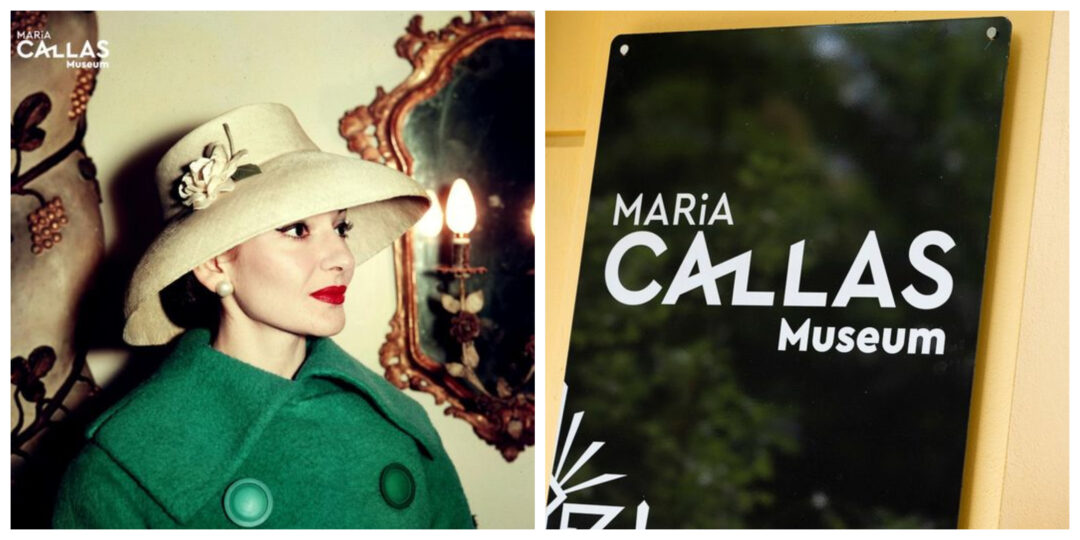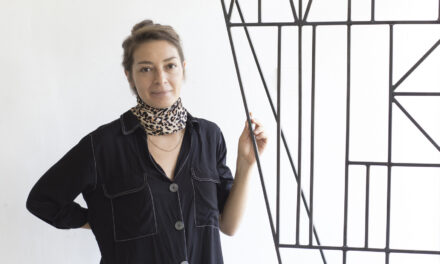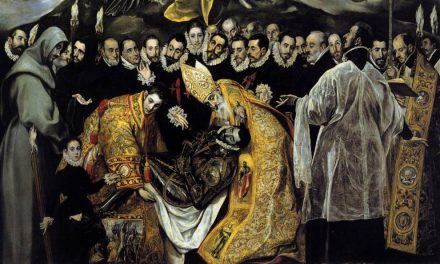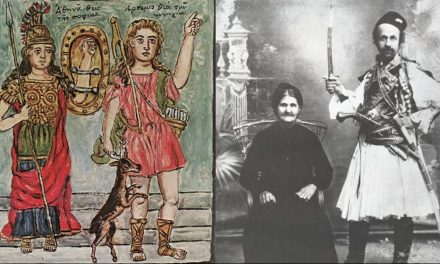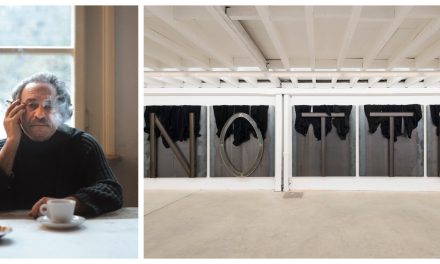The Maria Callas Museum is the first one dedicated to the Greek soprano who became an opera legend; it opened its doors to the public in October 2023, in the heart of Athens. The museum was inaugurated on the occasion of the centenary of the artist’s birth, which was included in UNESCO’s list of anniversaries for 2023; it aims to introduce the general public to the career and personality of the internationally renowned soprano, while highlighting the elements of her technique that made her unique.
The museum project was implemented by the “Technopolis” cultural organization of the Municipality of Athens, using modern museological approaches. Visitors are invited to immerse themselves in the world of “La Divina” and her unique interpretation of some of the most emblematic roles of her career. Through objects, texts and audiovisual footage, visitors to the museum can follow Maria Callas’ entire career: her first steps, her years in Greece, her international career and major roles, her social and personal life, her emblematic personality, and the legacy she left behind.
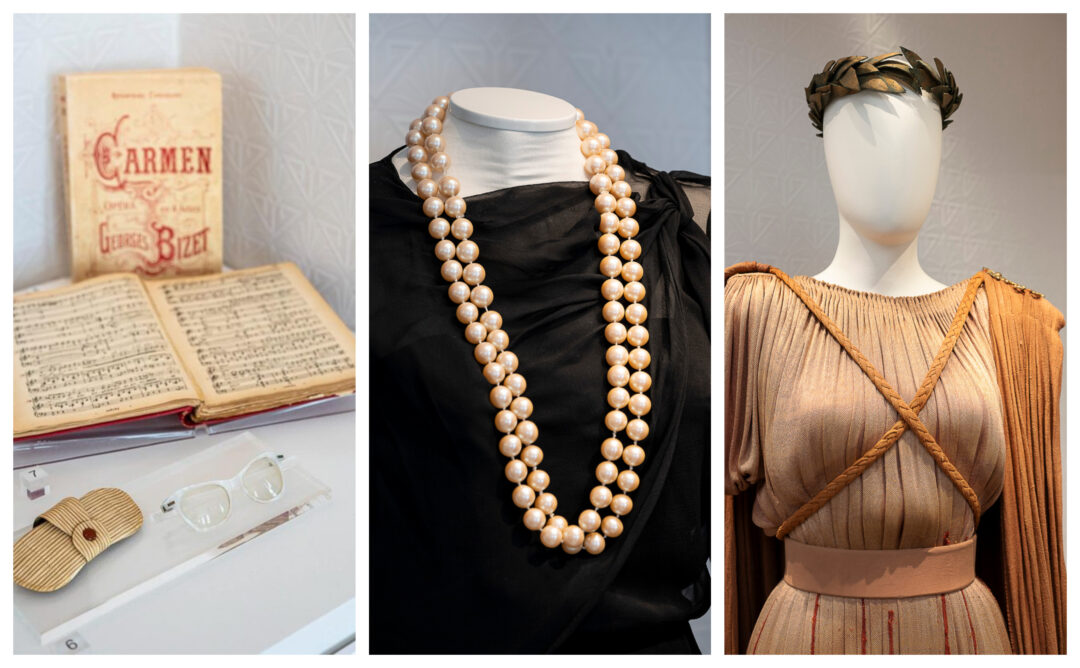
The creation of the collection
It all began in 2000, when the Municipality of Athens acquired the first objects in the Maria Callas Museum collection at an international auction in Paris. Since then, the collection has grown to include over 1,000 items. Various institutions –the Hellenic Ministry of Culture and Sports, the Maria Callas Geek Society, the National Opera of Greece, the National Library of Greece , the Benaki Museum, among others– as well as private collectors have contributed to the new museum, while some objects have been donated by La Scala in Milan, the Metropolitan Opera, La Fenice Opera House in Venice and the Arena di Verona, where Callas made her Italian debut in 1947.
The collection includes, among other items, her photo album (1947-1959), performance costumes, sheet music, letters, posters and programs, personal objects, records, books, magazines and paintings.
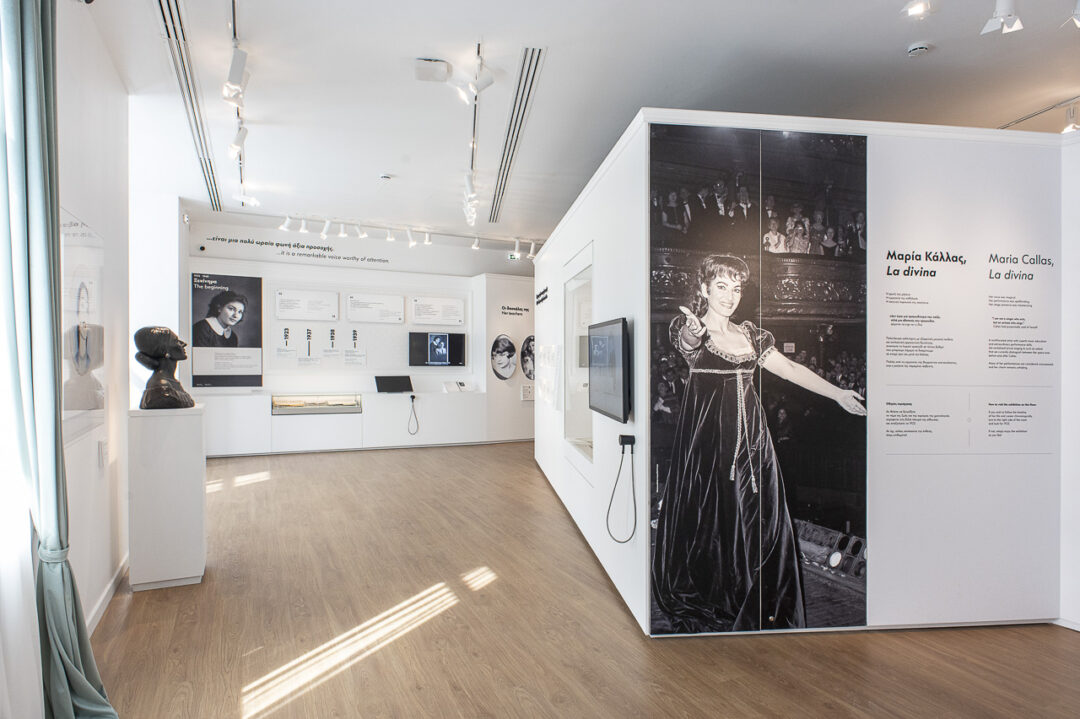
Visit the Maria Callas Museum
The tour begins on the second floor, with the Norma room, featuring the set for the aria “Casta Diva”. The next two rooms are devoted to the opera Tosca, in particular the aria “Vissi d’arte, vissi d’amore”, and to the opera La Traviata, with the aria “Sempre Libera”. The final room is devoted to the master class Maria Callas gave at the Juilliard School of Music in New York in the early 1970s, with recordings and photos.
The tour continues on the first floor, where visitors can discover the beginning of Maria Callas’ career, her career in Greece and internationally, her rich social life and moments in her life from 1968 to 1977. Visitors then move on to the museum’s nine thematic “islands”, dedicated to the great artist’s teachers, her mentor and conductor Tullio Serafin, as well as her great roles, personality, technique and professional skills. The public follows closely the important figures in Maria Callas’ life, her relationship with fashion, her myth and her legacy.
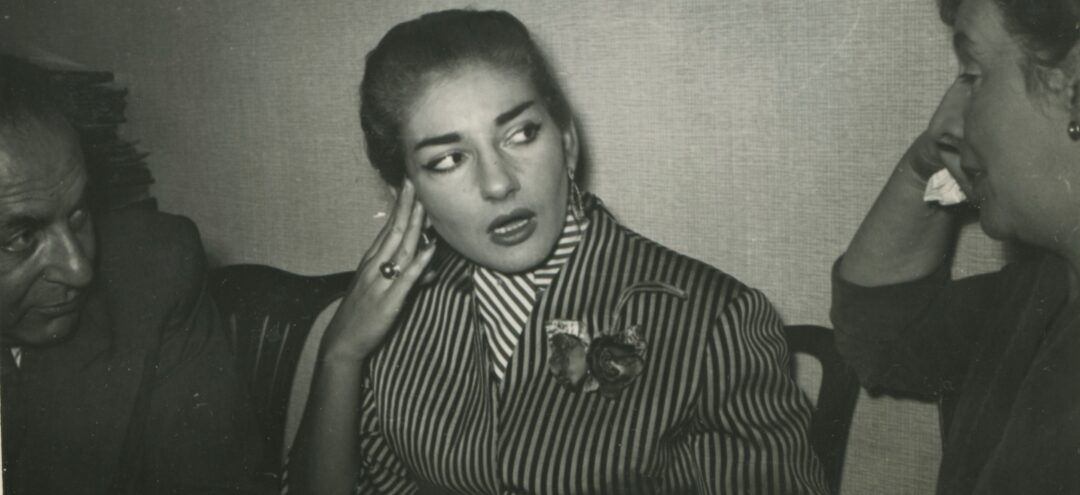
Short biography
Maria Callas was born on December 2, 1923, in New York City, to Greek parents who had recently migrated there. Her father, George Kalogeropoulos, would later shorten his long surname to “Kalos” and subsequently to “Callas”. From a young age, Callas exhibited a gift for music and singing. She moved to Athens with her mother in 1937 and began her music studies there.
signed her first contract with the Greek National Opera in 1940, under her birth name (Maria Kalogeropoulou); she made her professional opera debut in February 1941 playing the small part of Beatrice in Franz von Suppé’s operetta Boccaccio.
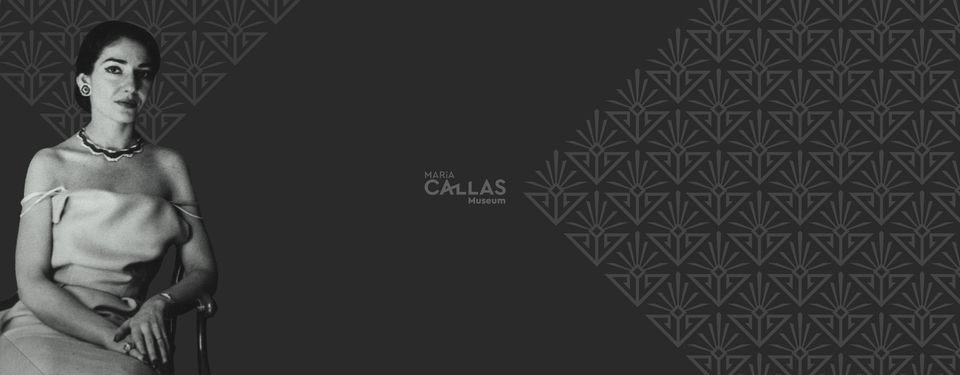
In 1947, she made her Italian debut at the Arena di Verona, in the title role of Ponchielli’s La Gioconda. Already in 1950, she appeared at Milan’s iconic Teatro alla Scala in Verdi’s I Vespri Siciliani; at the same theater, in 1952, she performed the title role in Bellini’s Norma, a role she reprised that same year at Covent Garden, to great critical acclaim. This performance catapulted her to international stardom. In 1954, she sang Norma for her American debut with the Chicago Lyric Opera and in 1956 she made debut at the Metropolitan Opera.
Callas taught master classes at the Juilliard School (1971–72). She sang in public for the last time in 1973. She would spend her final years living mostly in isolation in Paris; she died of a heart attack at age 53 on September 16, 1977.
Based original article which appeared on Grèce Hebdo
Read also via Greek News Agenda: Callas, La Divina; A tribute to Maria Callas by the General Secretariat for Greeks Abroad and Public Diplomacy on ERTFLIX
TAGS: ARTS | GLOBAL GREEKS

